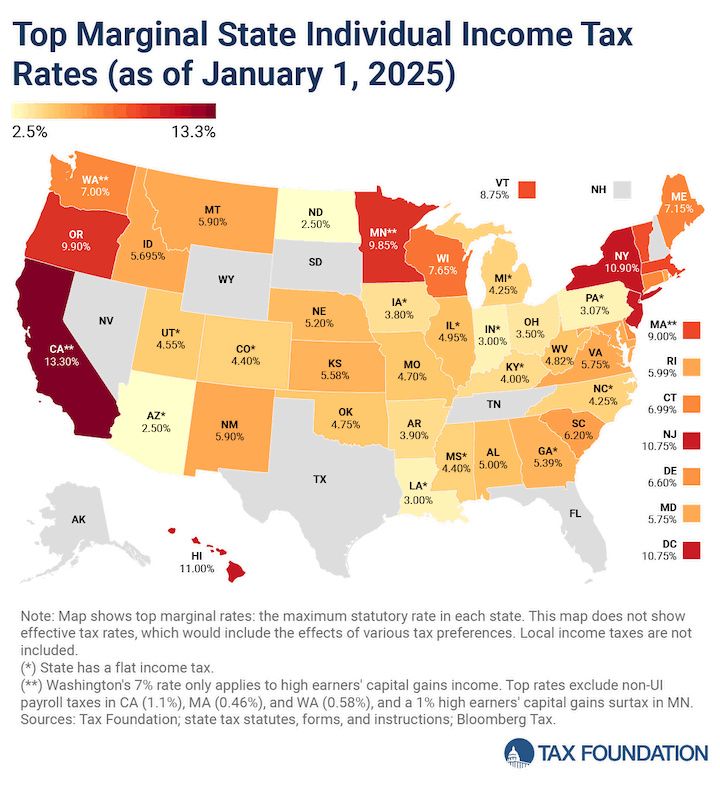Soon after you start dealing with sales tax, you’re going to also run into excise tax. What’s the difference?
According to the IRS, excise taxes “are imposed on certain goods, services and activities. Taxpayers include importers, manufacturers, retailers and consumers.” “Excise tax” is often in the news, mostly recently in how President Trump’s headline One Big Beautiful Bill called for increases in excise taxes for some private colleges and universities or the IRS reinstating the Superfund Chemical Excise Tax on chemicals and substances.
Excise taxes, which in the U.S. date from early in the Civil War can be imposed at the time of sale or use by the manufacturer or the retailer or at the time of use by the consumer. Your business is therefore responsible for collecting excise taxes and sending them to the proper authorities but, unlike sales tax, the cost of the excise tax is usually passed invisibly on to the consumer in higher prices.
Targeted tax
If sales tax is broad-based, excise tax is specific.
Excise tax, unlike sales tax, is also levied on the federal level, though generally U.S. jurisdictions collect far less in excise taxes than other countries do.
Fuel, alcohol, tobacco and gambling lead the list of products incurring excise taxes in state. “Excise tax” can also mean different things in different states: Hawaii's general excise tax, for instance, is a business privilege tax on the gross receipts of virtually any economic activity carried on in the state. Tourism-heavy states also apply excise taxes on hotel occupancy and similar services. Excise taxes make up an average of 10% to 20% of a state’s tax base, but in some states they constitute more than 30%.The top states depending on sales and excise taxes include Florida, Texas, Tennessee, South Dakota, Louisiana and Mississippi.
Excise taxes do resemble sales taxes in that their wide variation can be why prices for some items are higher or lower just over state lines. Politicians often find excise taxes more popular to increase than either sales or income taxes, hikes of which are more obvious to consumers (and voters).
Collected excise money usually flows into projects directly used by those paying the tax, such as excise taxes on gasoline being used to maintain roads and highways (effectively, says the Tax Foundation, an extra price on using public roads).
Calculating and reporting
Though sales and excise tax may serve similar ends to fill jurisdictions’ tax coffers, the two tax types are very different and often need to be managed separately.
Unlike sales tax, excise taxes are charged on specific items either as a percentage of the item’s price or by volume. The percentage method (“ad valorem”) can apply to such items as airline tickets, firearms and ammunition, tires, luxury cars and some sports gear. Invisible per-unit excise taxes might be in the consumer price of a gallon of gasoline or a bottle of alcohol.
Collection depends on who’s buying the product and what the product will be used for, where it’s going, and even how it’s getting there. Sometimes items are exempt; in some states, for instance, fuel is exempt from excise tax if used for aviation.
Unlike sales taxes, excise taxes are typically baked into the price of the product and you don’t generally show an excise tax charge at the point of sale or on the invoice: The tax is part of what the consumer pays, albeit indirectly.
If your business provides goods and services subject to excise tax, you report the taxes on IRS Form 720, Quarterly Federal Excise Tax Return. The form must be filed with the IRS semi-monthly or quarterly depending on how much your company owes in excise taxes. Certain nonprofits may be exempt from paying excise taxes for telephone service, and such nonprofits and local governments may be able to claim refunds or credits on some fuel taxes.
The good news: Businesses may be able to deduct some excise taxes.
Let an expert take sales tax off your plate. Contact us to learn how we can help alleviate the burden of managing sales tax.
Disclaimer: This story is auto-aggregated by a computer program and has not been created or edited by finopulse.
Publisher: Source link








